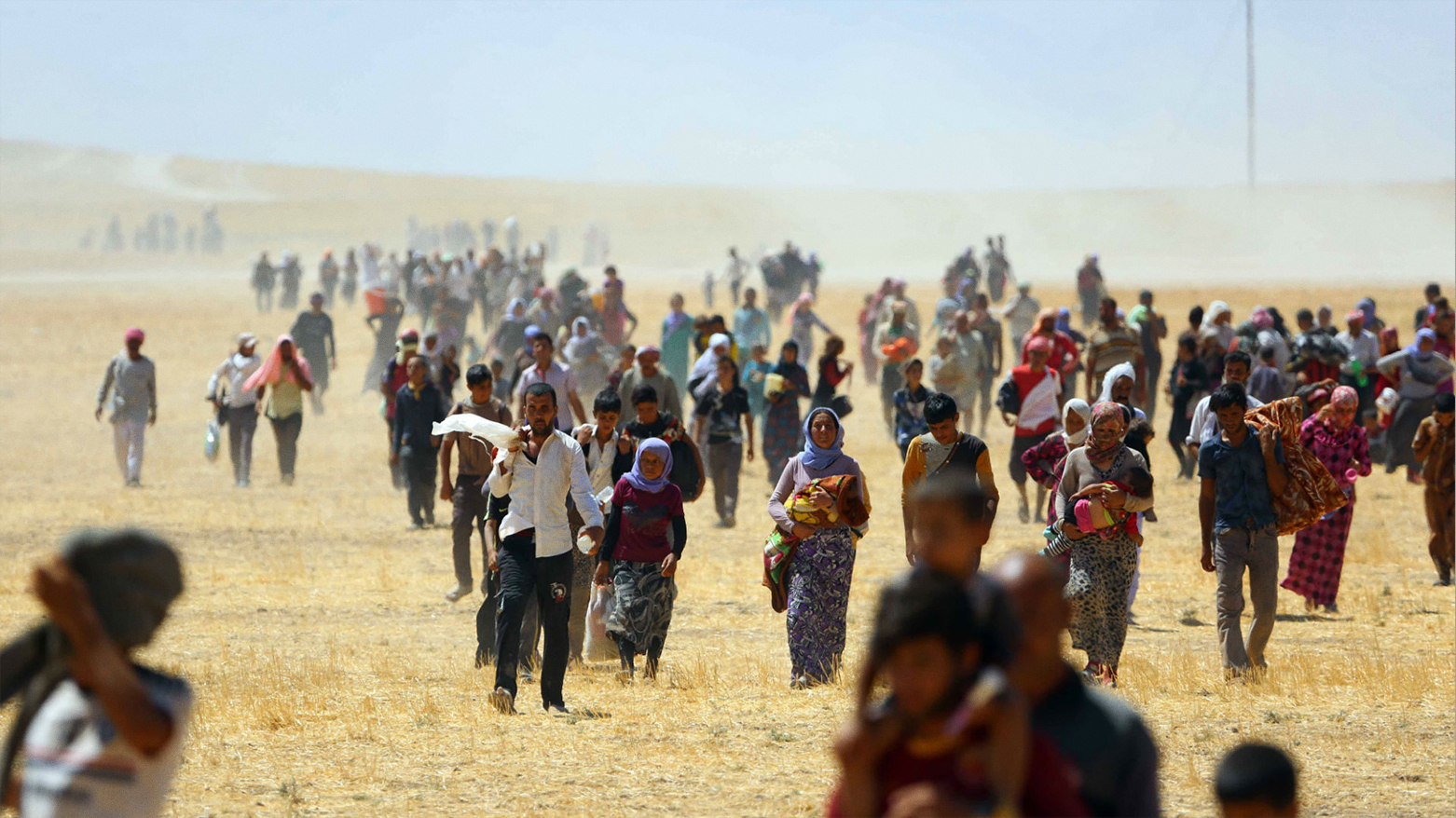U.S. Marks 10th Anniversary of ISIS’s Genocide, Echoing Kurdish, Yezidi Perspectives
Miller called for "full application of the security, reconstruction, and administrative provisions of the 2020 Sinjar Agreement, in consultation with the communities that call Sinjar home.”

WASHINGTON DC, United States (Kurdistan 24) – State Department Spokesperson Matthew Miller issued a statement on Saturday, commemorating the tenth anniversary of ISIS’s genocide, which was directed primarily against Yezidis, but also targeted Christians and Shia Muslims.
“Today we remember the victims and honor the strength of the survivors of ISIS’s genocide, crimes against humanity, and ethnic cleansing against Yezidis, Christians, and Shia Muslims,” Miller said.
“We also remember the Sunni Muslims, Kurds, and other minorities who were victims of ISIS crimes,” he continued.
“It is incumbent on us all,” Miller affirmed, “to rebuild and restore these communities,” while “justice, accountability, and political inclusion is essential to ensuring that we isolate and defeat violent extremists like ISIS once and for all.”
So, as Miller continued, “We urge continued implementation of the Yezidi Survivors’s Law and full application of the security, reconstruction, and administrative provisions of the 2020 Sinjar Agreement, in consultation with the communities that call Sinjar home.”
The Prime Minister of the Kurdistan Regional Government (KRG), Masrour Barzani, made a similar point, as he marked the anniversary. He, too, stressed the importance of implementing the Sinjar agreement and facilitating the Yezidis’ return to their homes.
Read More: Prime Minister of Kurdistan Region Government extends tributes to Sinjar massacre
Two weeks ago, a Yezidi delegation visited Washington and met with U.S. Secretary of State Antony Blinken, who expressed similar sentiments, while he highlighted U.S. support for Iraq and its displaced communities over the past ten years.
Read More: U.S. Aid to Iraq over Past Decade: $3.6 Billion
The Yezidi delegation also met with senior Pentagon officials during their visit.
ISIS emerged in 2014, in the middle of Syria’s civil war. As the highly-regarded German news magazine, Der Spiegel, reported the following year, ISIS’s founders were members of the former Iraqi regime that the U.S.-led war overthrew in 2003.
The article, a leak from German intelligence, was entitled .“Secret Files Reveal the Structure of Islamic State.” The Baathists had merely changed their clothes, their appearance, and their slogans. That also helps to explain the brutality of the terrorist organization.
Read More: U.S, Kills Senior Iraqi Figure in ISIS
In the summer of 2014, as ISIS forces crossed the border from Syria into Iraq, the Iraqi army in the north of the country collapsed. It was the Kurds, under the leadership of President Masoud Barzani, to whom the Yezidis appealed.
And, indeed, it was the Peshmerga who held the line, halting ISIS’s advance, as it seized one-third of the country.
The Peshmerga were soon backed by U.S. aircraft, which began bombing ISIS’s positions, marking the decade-long struggle to defeat the terrorist organization.
Yet serious problems remain, as noted above. ISIS is not yet defeated, while the Yezidis’ homeland is one area of Iraq that remains insecure.
Vian Dakhil, a Yezidi member of the Iraqi parliament, who heads the Kurdistan Democratic Party (KDP) faction in the assembly, spoke with Kurdistan 24.
Nearly 70 percent of the Yezidi people remain displaced, she explained, and they still live in camps in the Kurdistan Region.
Read More: Vian Dakhil, 70% of Yezidi people are displaced, live in camps in Kurdistan Region